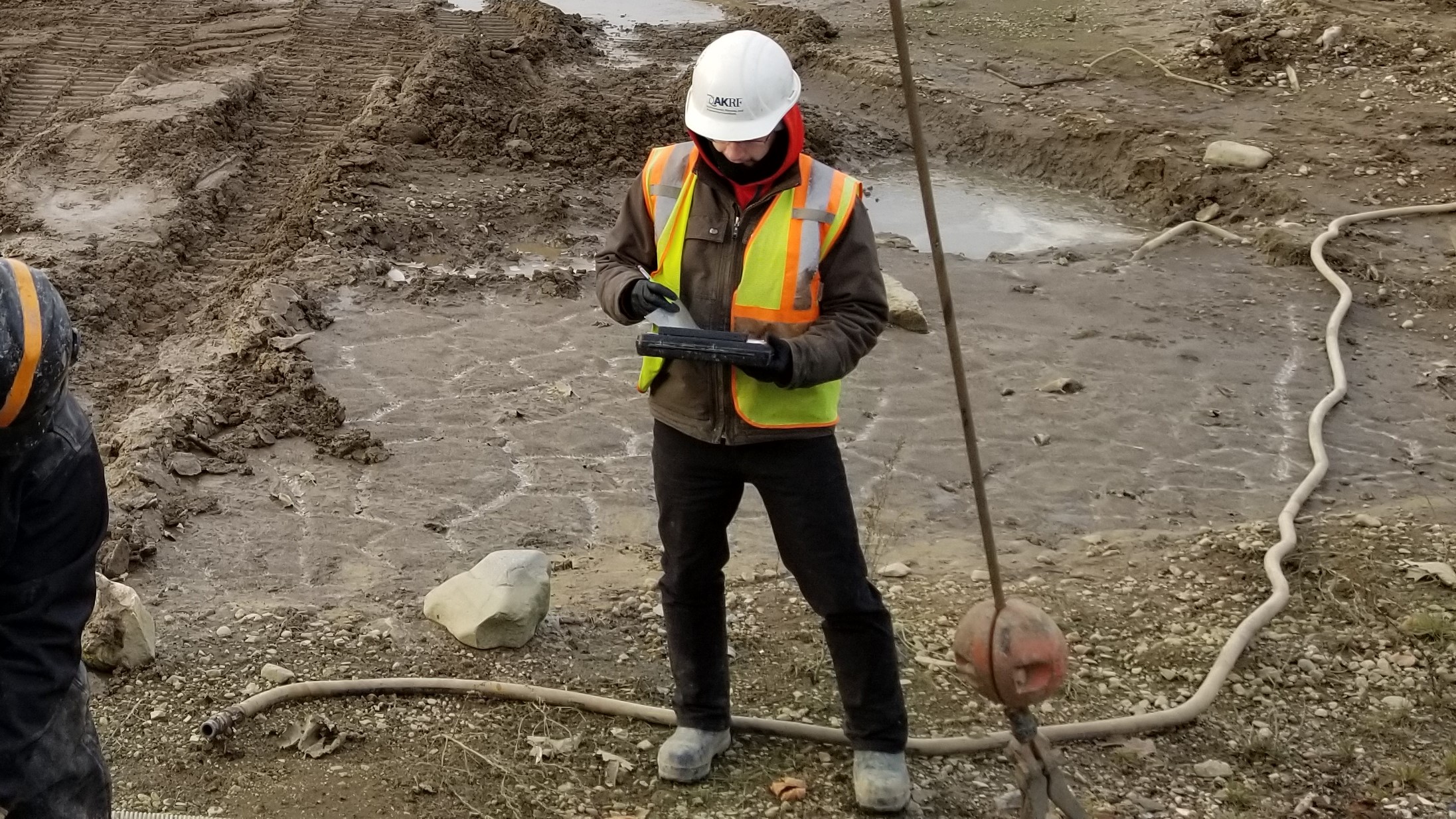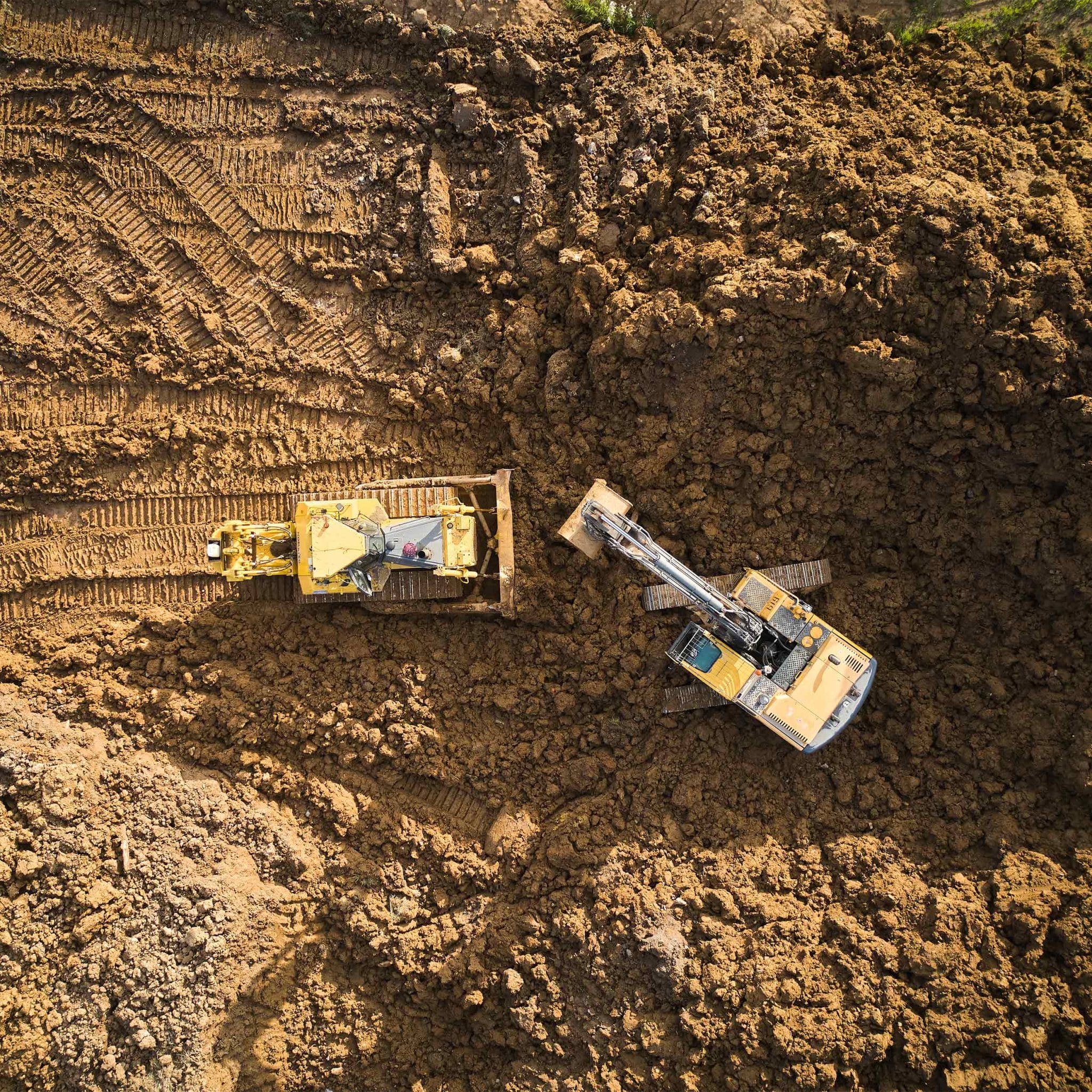Essential Top Qualities of Effective Civil Consulting Engineers
Essential Top Qualities of Effective Civil Consulting Engineers
Blog Article
A Thorough Introduction of the Key Obligations of Geotechnical Engineers in Website Characterization and Ground Improvement Methods for Design Solutions
Geotechnical designers are important to the successful implementation of design tasks, tasked with the essential responsibilities of website characterization and the application of ground enhancement strategies. Their work involves a comprehensive analysis of subsurface conditions, utilizing different screening methods to identify soil and rock buildings.
Role of Geotechnical Engineers
Geotechnical engineers play a crucial role in the style and building of framework by examining the habits of dirt and rock below the surface - geotechnical eng. Their duties include examining subsurface problems to notify design decisions that make sure structural security and security. By performing thorough analyses of dirt properties, including shear compressibility, leaks in the structure, and toughness, geotechnical engineers offer crucial information that affects the choice of ideal building products and methods
Along with examining soil technicians, geotechnical engineers are entrusted with identifying potential dangers such as landslides, sinkholes, and ground negotiations. Their competence aids mitigate threats related to these geotechnical phenomena, consequently protecting both the atmosphere and public safety and security. They also work together carefully with various other engineering self-controls, making sure that geotechnical considerations are integrated right into total task design.
Moreover, geotechnical engineers engage in the assessment of existing frameworks, giving recommendations for retrofitting and repairs when needed. Their thorough understanding of soil-structure communication is essential for the growth of sustainable infrastructure services. In general, the function of geotechnical designers is essential to the effective realization of building tasks, guaranteeing they are safe, resilient, and certified with regulatory standards.

Website Characterization Processes
Reliable site characterization procedures are necessary for understanding the subsurface problems that affect task design and implementation. Geotechnical designers utilize a systematic technique to gather, review, and translate data relating to groundwater, rock, and dirt characteristics. This procedure begins with a complete review of existing literature and archaeological site information, giving understandings into previous website problems and potential difficulties.

Information analysis complies with fieldwork, where designers utilize geostatistical approaches to translate findings and produce geological versions. With persistent website characterization, geotechnical engineers lay the foundation for successful job implementation, maximizing and reducing unforeseen problems resource allowance.
Dirt and Rock Testing Approaches
While recognizing subsurface problems is crucial, the option of suitable dirt and rock screening approaches is similarly vital for exact evaluation and style. Geotechnical designers use a variety of testing methods to assess the physical and mechanical properties of soil and rock products.
Laboratory examinations, such as Atterberg limits, grain dimension analysis, and unconfined compressive stamina tests, offer vital data on dirt actions under different wetness problems and filling circumstances. These examinations assist establish dirt category and forecast settlement or shear stamina features critical for structure style.
In-situ screening approaches, consisting of Requirement Penetration Examinations (SPT), Cone Penetration Examinations (CPT), and pressure meter tests, permit engineers to gather information directly from the ground. These techniques provide beneficial insights right into the dirt's thickness, consistency, and stratification without the demand for comprehensive sampling.
Rock screening normally includes core sampling and lab analysis to analyze residential properties like uniaxial compressive toughness and rock top quality designation (RQD) With Continue each other, these soil and rock testing methods make it possible for geotechnical engineers to make informed choices relating to site-specific difficulties, ensuring the safety and security and stability of engineering solutions.
Ground Renovation Techniques
Ground renovation strategies are necessary for improving the engineering residential or commercial properties of soil, consequently enhancing its load-bearing ability and reducing settlement. These techniques are essential in resolving challenges offered by weak or bothersome soils, which can significantly impact the stability and toughness of structures.
Different ground renovation techniques are utilized, consisting of compaction, grouting, and soil stabilization. Compaction entails boosting the density of soil via mechanical methods, which enhances its shear strength and minimizes compressibility. Grouting, on the various other hand, involves infusing a liquid material into the ground to load spaces and improve dirt communication. This technique is particularly reliable for dealing with loose sands or broken rock.
Dirt stablizing incorporates a series of techniques, from chemical additives to mechanical treatments, targeted at enhancing the dirt's resistance to disintegration and contortion. Methods such as lime stablizing or concrete blending modify the properties of the soil at a particle level, enhancing its general performance.
Importance of Geotechnical Assessments
Geotechnical evaluations play an essential function in the planning and layout of engineering tasks, as they give crucial details about the subsurface problems. Recognizing soil residential or commercial properties, rock developments, groundwater degrees, and potential geohazards is important for guaranteeing the stability and security of structures. These analyses allow engineers to make educated decisions relating to website option, layout criteria, and website here building and construction methods.
The value of geotechnical evaluations prolongs beyond first job phases; they are important in danger administration and price efficiency. By identifying possible issues early, such as dirt settlement, incline instability, or excessive groundwater, engineers can develop appropriate reduction methods, reducing the probability of architectural failures and costly hold-ups. These evaluations sustain compliance with governing demands and boost the sustainability of engineering methods.

Verdict
To conclude, geotechnical designers are vital to making certain the security and security of design jobs via detailed website characterization and ground enhancement techniques. geotechnical industry. Their systematic strategy to evaluating subsurface conditions, combined with their suggestions for effective ground alteration, substantially improves soil buildings and load-bearing ability. The know-how of geotechnical designers not only facilitates enlightened project planning however likewise ensures compliance with laws and fosters efficient communication among stakeholders, inevitably adding to successful engineering outcomes
Geotechnical engineers play a critical function in the layout and construction of framework by analyzing the behavior of soil and rock below the surface area. By performing detailed analyses of soil residential or commercial properties, consisting of shear toughness, compressibility, and leaks in the structure, geotechnical engineers offer important data that affects the selection of proper building and construction products and techniques.
In enhancement to analyzing dirt technicians, geotechnical designers are tasked with determining prospective threats such as landslides, sinkholes, and ground negotiations. Geotechnical designers employ a systematic technique to gather, examine, and interpret data relating to groundwater, continue reading this rock, and soil features. By identifying potential issues early, such as soil settlement, incline instability, or extreme groundwater, engineers can design ideal mitigation techniques, reducing the likelihood of expensive hold-ups and structural failings.
Report this page